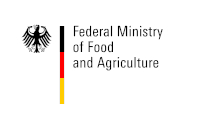AQUASTAT - 粮农组织全球水与农业信息系统

KnoWat – Knowing Water better
Towards a more equitable and sustainable access to natural resources to achieve food security
Overview
All around the world, countries are struggling to adapt their agriculture and food systems to conditions of water scarcity, climate change and increased competition between users. According to the actual trends and projections water scarcity is expected to increase. Particularly smallholders are the most vulnerable to changes in water access and availability. A strengthened focus on water governance for agriculture and food security is therefore crucial to address water scarcity in a changing climate.
In this context, FAO, with the support of the Federal Government of Germany, is implementing the project “KnoWat - Knowing Water better” to strengthen water governance processes in Rwanda, Senegal and Sri Lanka, as pilot countries.
The objectives of the project are:
- Strengthen water governance and management processes to address water scarcity and increased competition for water resources.
- Strengthen capacities of national water experts and farmers in Rwanda, Senegal and Sri Lanka on water resources assessment.
- Inform the conceptual discussion on water tenure with country perspectives and experiences.
The water resources assessment, in particular, will focus on different aspects according to the country: In Rwanda, several scenarios of water allocation will be explored in the context of increasing competition among water users. In Sri Lanka the assessment will dig into issues such as environmental protection and economic growth and will analyze the different strategies to manage water in a more sustainable manner. In Senegal the project will seek to better understand the interlinkages between water and land.
The project final outcomes are:
- Develop and test a methodology to assess water resources, taking into account biophysical, socio-economic, political, legal and cultural aspects of water use, including water tenure.
- Raise awareness about the concept of water tenure with a broader audience through outreach activities.
Tools and methods:
In order to undertake the water resources assessment and to evaluate water management and allocation options, the project builds on the following tools and methods to which it will also contribute with new data and information:
- The use of WaPOR, FAO’s portal to monitor Water Productivity through Open access of Remotely sensed derived data, to access geospatial data on the water resources in the three countries.
- AQUASTAT terminology and methodologies to calculate water balances ensuring coherence with the AQUASTAT database.
- Water accounting and auditing (WA&A) to understand the water balance, including water supply and demand, and its spatial and temporal dimensions. This will help to make better use of water-related information.
- Water tenure assessment to understand the formal - and legally binding - as well as customary and informal arrangements to access water. Exploring the concept of water tenure at country level contributes to better understand the different relationships between people and water resources.
The assessment of water tenure, including the legal, institutional and policy frameworks will be instrumental in updating the AQUASTAT country profiles. The strengthened capacities on water accounting, auditing and tenure assessment will enable the countries to generate up-to-date information on agricultural water management which will inform decision-making at local and national levels, as well as global information systems such as AQUASTAT.
For more information on the KnoWat project, check out the new website at http://www.fao.org/in-action/knowat/en/
Project Coordinator
Benjamin Kiersch,
[email protected]
